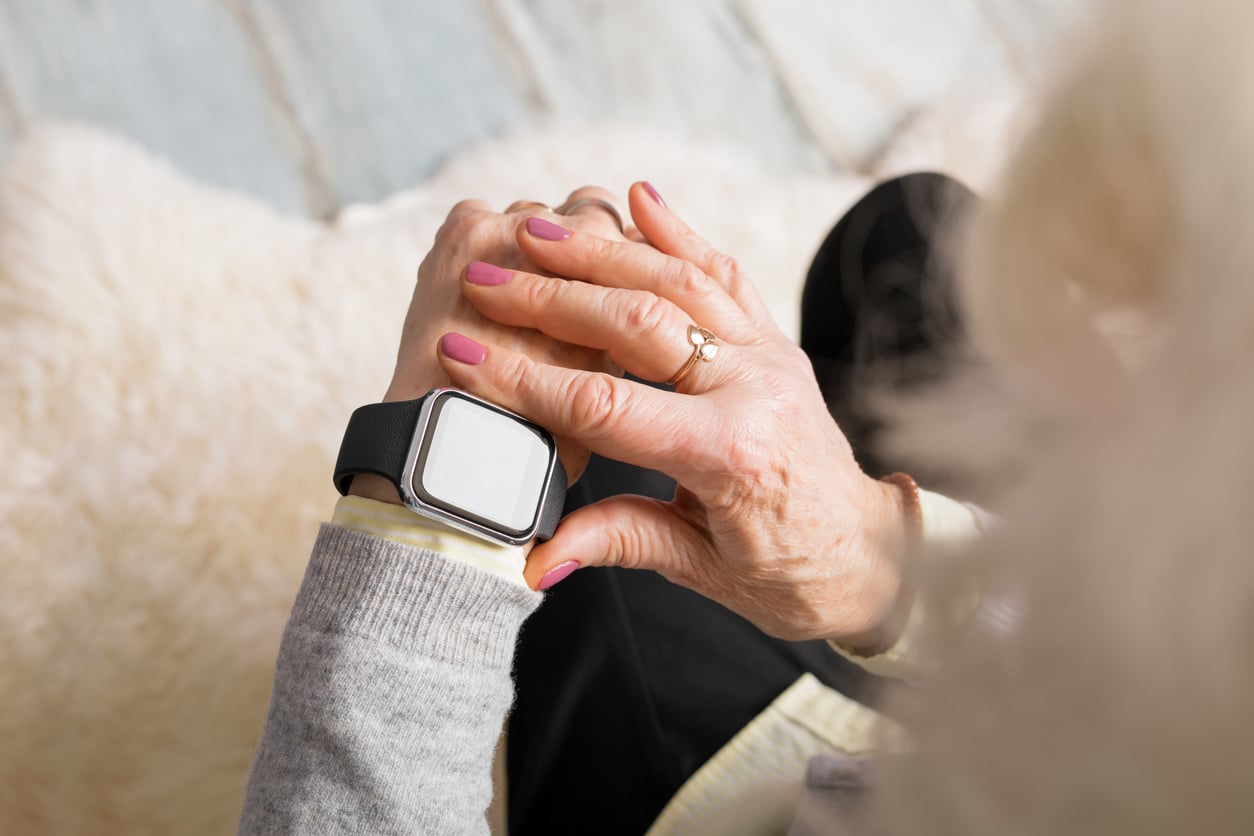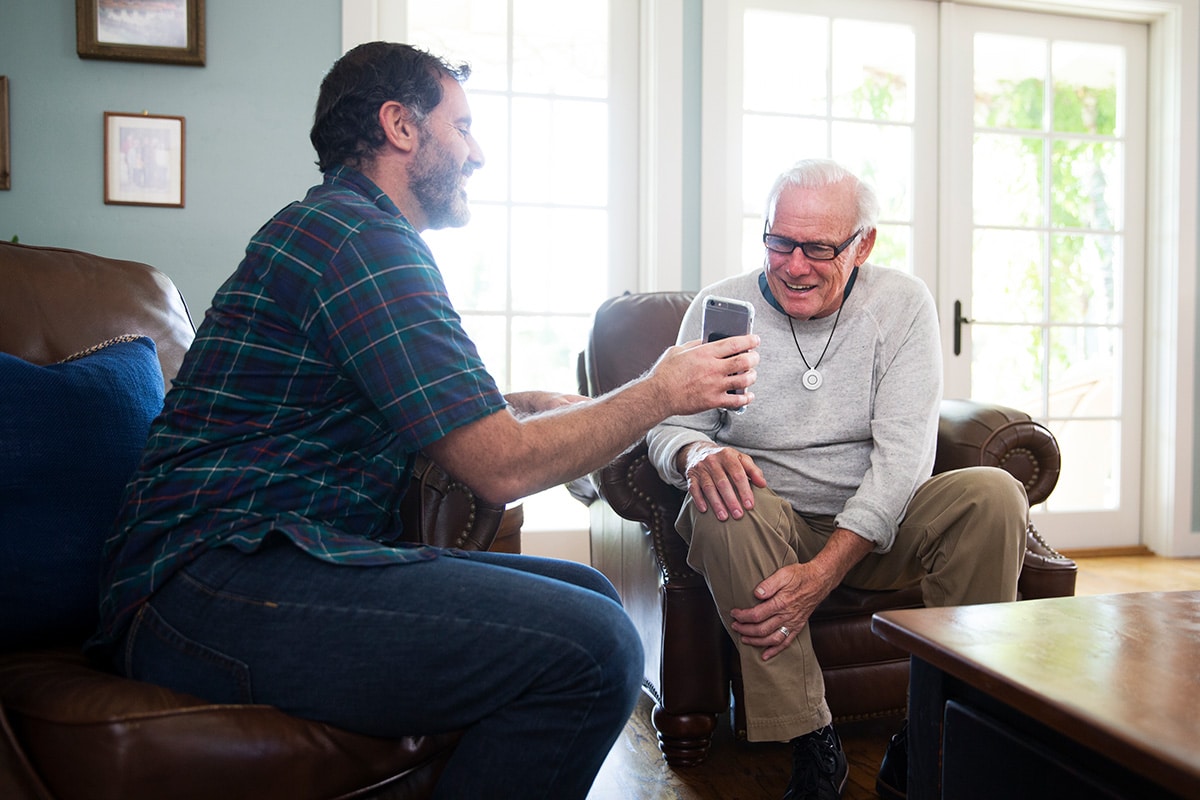If you live alone or spend time at home alone, the thought may have crossed your mind, “What if I fall? How will I get help if I can’t get to the telephone?” Those are valid questions, and the answer is a medical alert system, also called a personal emergency response system or “PERS”. They provide you and your family members with peace of mind.
What is a Medical Alert System?
The system is an alarm that allows you to call for help with a push of a button. The Better Business Bureau (BBB) defines the medical alert system as a three-part system, consisting of
- A battery-operated transmitter (most are waterproof) that you carry or wear
- A console or base station connected to your telephone
- A monitoring station
When you press the button on the transmitter, it sends a signal to the console, which automatically dials one or more predetermined phone numbers, usually a monitoring station. The monitoring station personnel will then summon help for you. Even if your phone is off the hook or in use, most systems can “seize” the line and place a call.
The transmitter is small, and you can wear it or carry it in your pocket. It can be worn as a pendant around the neck, on a wristband like a watch, or looped through a belt.
The transmitter can typically operate hundreds of feet from the base station, but it may not operate when you’re away from home.
Cost
Costs vary depending on whether you rent, lease, or purchase the system. When purchasing a medical alert system, expect to pay between $200 and $1,000 plus a monthly monitoring fee of $15 to $50. Rentals range from $15 to $50 a month, including the monitoring fee. Long-term leases and lease-to-own terms vary widely.
Purchasing or Renting a Medical Alert System
Always purchase or rent from a reputable source — never from an unsolicited stranger. Here are a few things to keep in mind when you’re looking for a system:
- Compare features and costs of several systems.
- Look at the operation of several systems and find one that you’re comfortable using.
- Test the system all over your house and outside in the yard so you know where the system works in and around your home.
- Read the agreement and make sure you understand it before signing on the dotted line.
Questions to Ask
The Federal Trade Commission has posted a list of questions to ask before purchasing a medical alert system:
- What are the hours of operation at the monitoring station? You want a station that is open 24 hours a day, 365 days a year.
- Can you use the system with other monitoring stations? Will it work if you move across town or to another state?
- What kind of training do personnel at the monitoring station receive?
- What can I expect when the monitor stations tests the system, and how often do they test it?
- What are the terms of the warranty, and can I have 30 days to return the system if it doesn’t suit my needs or work as advertised?
According to the AARP, experts and doctors agree that the key to success with a medical alert system is a “motivated user.” This means that you must be motivated to keep the transmitter with you for it to be effective.
If you want to know that help is only a button press away, you should consider a medical alert system. There’s nothing like knowing that whatever happens, regardless of the time of day, help is available. As an added benefit, a medical alert system can put your loved ones’ minds at ease.
See also: The Critical Difference Between a Medical Alert Bracelet and a Medical Alert System
Find the Right Medical Alert System for Your Lifestyle
If you are seeking protection, peace of mind, and the fastest possible response in an emergency, Lifeline offers easy-to-use medical alert systems that can be tailored to your unique lifestyle. Whether you’re looking for protection at home or on the go, we’re here to help you find the perfect solution.
Get started today by taking our short product selection quiz to determine which system is the right fit for you. Your safety, independence, and peace of mind are our top priorities, and we’re here to assist you in ensuring a rapid response in times of need.




